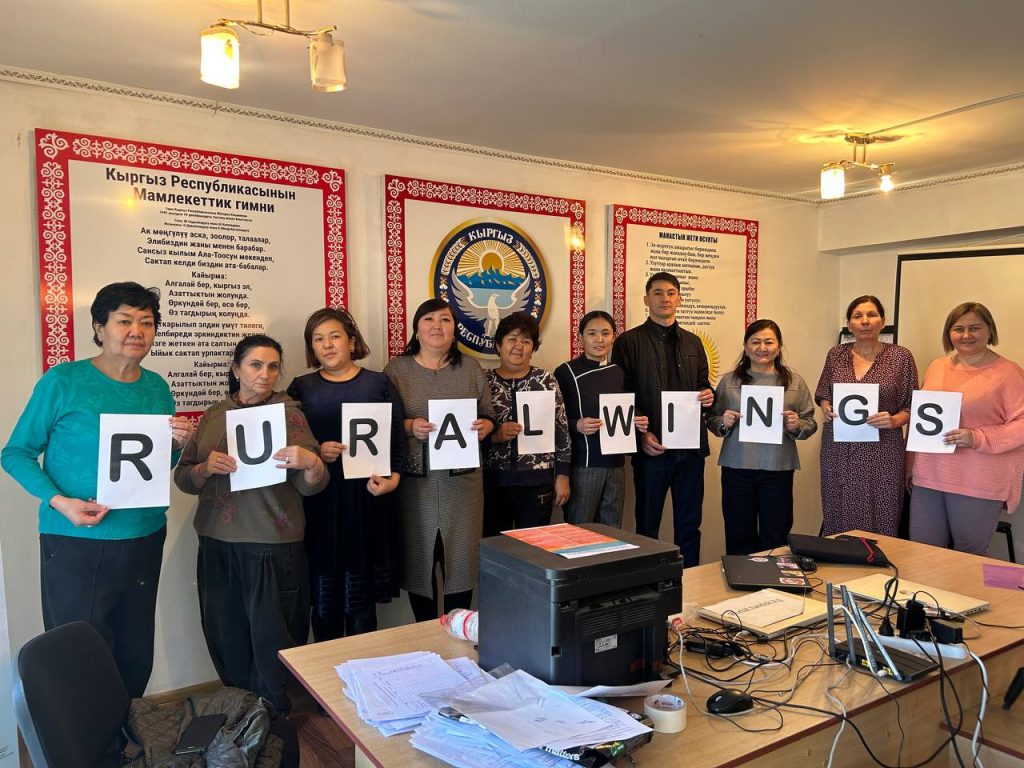
Following the UN CEDAW recommendations and evidence-based guidelines, Chance Crisis Center successfully applied the Rural WINGS project collaboratively with the Global Research Institute (GLOR) Foundation and the “Protection of the Dignity of Vulnerable Populations” NGO. The project was implemented in Kyrgyzstan with a grant support from the BEARR Trust Fund Small Grants Scheme to disseminate the WINGS intervention methodology in the rural areas of the Chui region.
WINGS (Women Initiating New Goals for Safety) gender-based violence (GBV) prevention intervention is an evidence-based Screening, Brief Intervention, and Referral to Treatment (SBIRT) model consisting of 1-2 individual sessions focusing on raising awareness of and screening for different types of intimate partner violence and GBV, safety planning, enhancing motivation and social support to address violence, goal setting, linkage to GBV and medical services. Rural WINGS model bases on the same conceptual framework and utilizes the same key strategies; however, it is adapted to rural context where access to services is significantly more challenging if compared to the city environment.
The Rural WINGS project was implemented in Kyrgyzstan in July-December, 2023, by Chance Crisis Center (primary grant recipient), “Protection of the Dignity of Vulnerable Populations” Belovodskoe-based NGO, the Bishkek-based Global Research Institute (GLORI) Foundation, and the State Administration of the Moscow Province who provided valued administrative support, as well as premises for conducting training and supervision sessions.
The high prevalence, severity and frequency of all types of IPV and GBV is a significant social issue in the rural areas of Kyrgyzstan that worsens by lack of crisis centers and trained social workers that are somewhat available in the larger towns. Being adapted to rural context, WINGS has potential as a brief low-threshold intervention to address GBV among women in resource-constrained settings. WINGS SBIRT with integrated training and capacity building components is efficient in managing GBV among women and girls.
Given that community-based and municipal social protection agencies have unique access to rural at-risk communities, it is important to invest in developing those agencies’ capacity that would contribute to the WINGS services sustainability. These integrated approaches have translational potential with scope of adoption, adaptation, and scaling-up.
It is important to share the project findings and developed resources with the Ministry of Labor and Social Development and Ministry of Health for further engaging them in providing trainings for the providers working with survivors or perpetrators of gender-based violence as mentioned in the Istanbul Convention, and continuously enhance these providers’ competence regarding prevention and detection of such violence, promote gender equality, increase awareness of the needs and rights of victims, including on use of effective referral mechanisms.

















